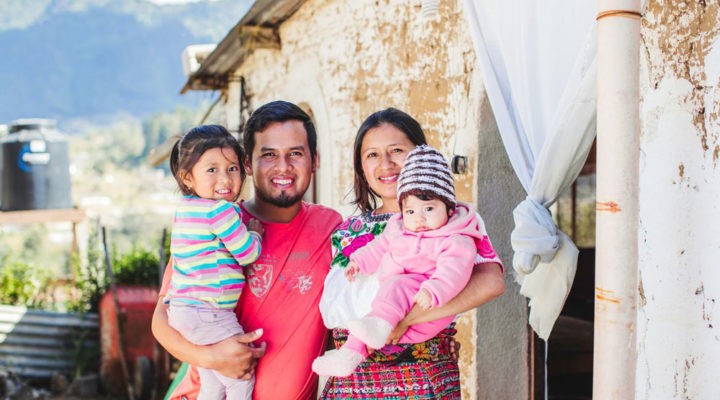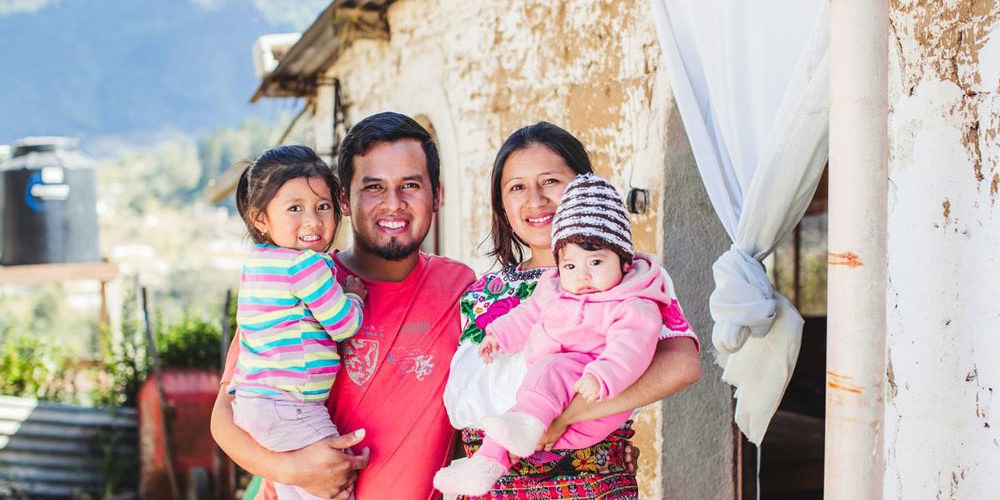Ending poverty among children and their families is the goal of a new partnership between Baylor University and Compassion International. The effort will pair Baylor’s educational expertise with Compassion’s historic mission to address persistent family poverty and bring about global human flourishing.
The initial project for the partnership, which was formally announced Oct. 28, will increase the knowledge and ministry tools available to Compassion-affiliated pastors in Guatemala. Beginning this week, eight pastors in that Central American country have begun the online ministerial certification program offered by Baylor’s George W. Truett Theological Seminary.

Mike Cookson
“The concept is: Can you take that program that was developed for U.S.-based pastors and can you apply it to Compassion pastors who are out in the field?” said Mike Cookson, Compassion’s director of strategic partnerships. “We have a great network of pastors out in the world that need better ways of being trained in theology. Baylor has a fantastic seminary that we want to tap into.”
At the same time, he said, the project will help the seminary in its goal of spreading the gospel on a global scale. “Compassion is one of the partners, one of the mechanisms that can bring those pastors to the table to start figuring out how do we do that,” he said.
Truett Seminary and School of Social Work connection
Lori E. Baker, Baylor’s vice provost for faculty development and diversity, said the partnership will help Truett Seminary learn how to adapt its program to be more culturally relevant in different locations, but the certificate of ministry is just a start. Pastors also will benefit from gaining skills in business, social work, marketing, health and education, to name a few, as the partnership develops and grows.
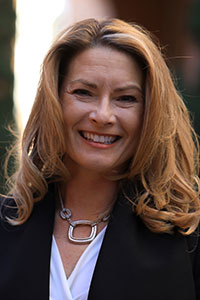
Lori Baker
“Baylor has 12 colleges and schools within the university, and we’ll be engaging all of them,” she said.
For example, Baylor’s Garland School of Social Work has a Global Missions Leadership program that will offer scholarships to young people from Compassion’s educational programs. Another area of focus will be health, and a Baylor professor and graduate student from Peru will begin working with Compassion on health topics in Guatemala.
“Poverty is so multi-dimensional,” Baker said. “We’ve got to hit it from every angle. Any tool that we can bring to the community is going to be translated into helping these children flourish and helping the community flourish. It’s pretty exciting to think that we have an avenue for doing that. As a university we might be able to aspire to do something like this on a very small scale, but it would take a very long time to ramp it up, to get partnerships and to get the trust to be able to bring this into different communities.”
Compassion fights poverty
Cookson said working on poverty at the local church level has been Compassion’s model since its founding in 1952, with 8,000 churches in 25 countries currently affiliated. That model will continue through the partnership with Baylor.
“When we release a child from poverty in Jesus’ name — that’s our tagline — we always offer it through that local church,” he said. “And obviously it’s important how well equipped that pastor is to deal with their local environments and how well educated they are in theology and social work and in trauma and in poverty and in education and in health. They can’t know all those things. They’re relying on their local experts in their local community. We’re not a school; we bring in tutors. We’re not a clinic; we bring in doctors. But as that pastor knows more about how to provide those services, then he can provide better services to that child.”
When Compassion speaks of children living in poverty, they’re talking about children living on less than $2 a day.
Cookson said when Compassion speaks of children living in poverty, they’re talking about children living on less than $2 a day.
“That’s a hard life, and that’s a tough life to have hope, and that’s a tough life to have a faith,” he said. “So when we educate those pastors to be able to speak to those aspects, that’s a clearer line of how a child goes from their day-to-day life to proceeding through the Compassion programs with a better knowledge of Christ and with a better equipping to be released from poverty.”
A long-term investment
Cookson said Compassion doesn’t provide just poverty intervention but instead changes lives through long-term interaction. Children remain in Compassion’s educational program for about eight years on average, and sponsors, numbering 1.5 million, are in it for the long term as well. Tying it all together are the pastors of the local churches.
“That pastor was there before Compassion was on the ground, they’re there while we’re on the ground, and they’re going to be there after we leave,” he said.
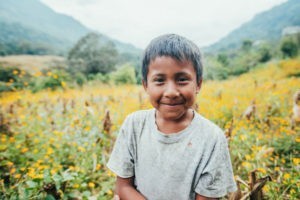 Baker said Baylor’s initial focus in Guatemala aligns directly with “Baylor in Latin America,” one of five academic initiatives in Baylor’s “Illuminate” strategic plan. In her faculty development role, she said she looks for opportunities for faculty “to be animated by their faith; to use their gifts and talents and expertise in ways that they feel called to do by God. Working alongside Compassion can really help our faculty see how they can engage their expertise in real-life work alongside other Christians.”
Baker said Baylor’s initial focus in Guatemala aligns directly with “Baylor in Latin America,” one of five academic initiatives in Baylor’s “Illuminate” strategic plan. In her faculty development role, she said she looks for opportunities for faculty “to be animated by their faith; to use their gifts and talents and expertise in ways that they feel called to do by God. Working alongside Compassion can really help our faculty see how they can engage their expertise in real-life work alongside other Christians.”
Cookson said that as director of strategic partnerships for Compassion, his role is to figure out how this and other partnerships will work, whether it be with tech companies, private companies, governments or churches.
“Academia has a huge part to play in this, and Baylor is an obvious candidate to get started with us,” he said. “It’s going to reach into seminary work, it’s going to reach into faculty, it’s going to reach into students, it’s going to reach into supporters, it’s going to reach into athletics. There’s all kinds of tentacles that we can leverage here. We just need to figure out what those specific items are.”
Months in the planning
The partnership between Baylor and Compassion International comes after several months of conversations between the two entities.
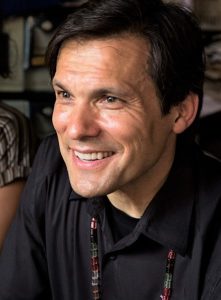
Santiago Mellado
“I can’t tell you how grateful I am to partner with Baylor to help release even more children from poverty in Jesus’ name,” said Santiago “Jimmy” Mellado, CEO of Compassion. “Innovating with a premier academic and research institution who shares our faith and our passion to serve the world’s most vulnerable children will be nothing short of transformational. Even in this early stage, I’m seeing how this partnership will expand our reach and impact to better care for more than 2.2 million children living in unacceptable poverty.”

